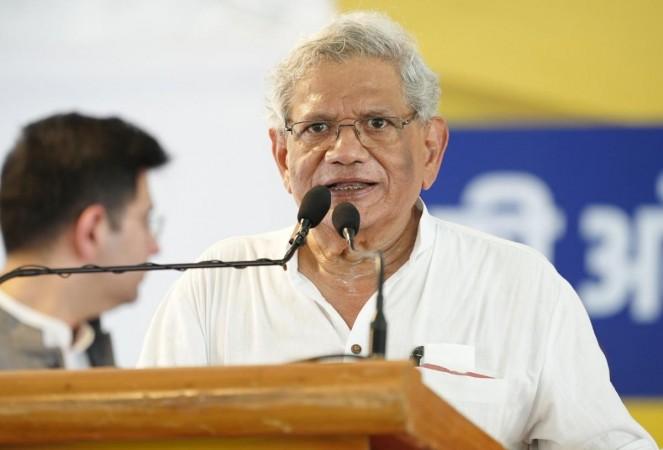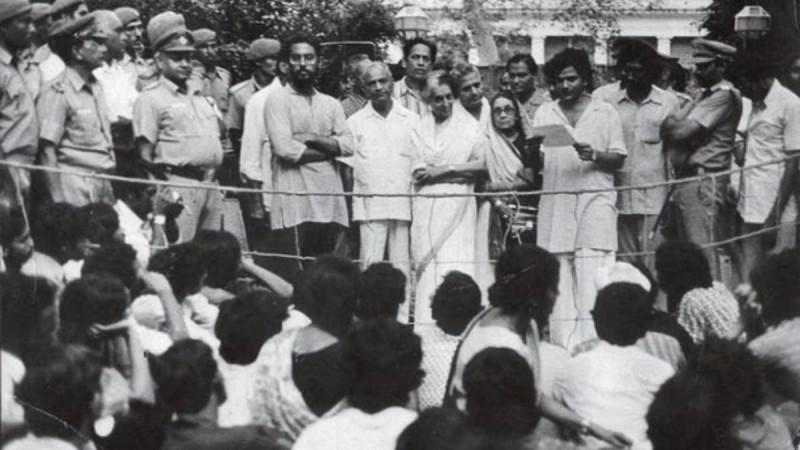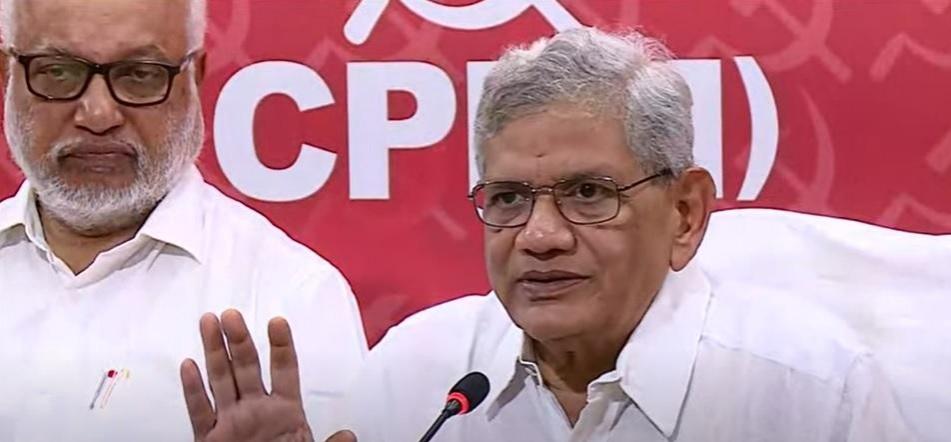
- Sitaram Yechury, a stalwart of Indian politics and former general secretary of the Communist Party of India (Marxist), passed away at 72.
- Yechury's political career began at JNU, where he led a significant protest against then Prime Minister Indira Gandhi, marking a turning point in his career.
- He held key positions in the Students' Federation of India and the CPI (M), and formed significant alliances with Congress leaders.
- Yechury's passing marks the end of an era in Indian politics, but his influence and legacy will continue to shape the country's political landscape.
Sitaram Yechury, a prominent figure in Indian politics and a former general secretary of the Communist Party of India (Marxist), passed away at the age of 72 on a Thursday. He had been battling a prolonged illness and was receiving treatment for acute respiratory tract infection in the intensive care unit of AIIMS, Delhi.
Born in Chennai in 1952, Yechury moved to Delhi after leaving his studies at Nizam College in Hyderabad. He secured an all-India first rank in his Class 12 examination in 1970 and went on to study at St Stephen's College and Jawaharlal Nehru University (JNU), where he met Prakash Karat, a fellow communist.
Emergence of a Political Leader
Yechury's political career began at JNU around 50 years ago. He was pursuing his doctorate in Economics when the Emergency was imposed in 1975. He was later arrested along with other leaders, and his PhD remained incomplete.
After the Emergency ended, he was elected as JNU Students' Union President thrice during 1977-78. In the 1970s, Yechury rose to prominence after he led hundreds of JNU students to the residence of then Prime Minister Indira Gandhi, demanding her resignation as the institution's Chancellor.

Indira Gandhi had held on to the post despite losing the Lok Sabha polls after the Emergency. Yechury read out the students' demand in her presence, and days later, Gandhi resigned from her post.
He once narrated the whole incident as: "There were 500 of us. Her aide told us that only five of us can go in to meet her. But when we insisted, she herself came out. We read out our resolution against her which was full of litanies, but she heard stoically. I handed over the resolution to her and she took it politely too. Couple of days later, she resigned."
This incident marked a significant turning point in Yechury's political career, propelling him to become the most popular face of his party, the Communist Party of India (Marxist).
A Life Dedicated to Politics
In 1978, Yechury became the All-India Joint Secretary of the Students' Federation of India (SFI) and then went on to become SFI's All India President, despite not being from Kerala or Bengal. He quit SFI in 1986 and was later elected to the Politburo, the highest body of the CPI (M), in 1992. Yechury's relationship with the Congress party evolved over time.

In July 2005, he was elected to Rajya Sabha from West Bengal. He was the member of the Upper House till August 2017. During this time, he was succeeded by Prakash Karat, who held the post of CPI (M) general secretary between 2005-2015. In 2018, Yechury was re-elected as CPI (M) general secretary, followed by another term in April 2022.
Despite his history with Congress, he formed a strong bond with Rajiv Gandhi during the Sri Lankan truce, with former Congress president Sonia Gandhi and later with the Leader of Opposition in Lok Sabha, Rahul Gandhi. This bond, however, displeased some of the Congress and CPI (M) leaders alike.
In 2004, Yechury was the first non-Congress leader who was called by Sonia Gandhi after she met President APJ Abdul Kalam before forming the Congress-led United Progressive Alliance (UPA) government. She had called him as she wanted to meet the then CPI (M) chief Harkishen Singh Surjeet to inform him that she did not want to become PM.
Legacy and Influence
Yechury had learnt a lot from Surjeet, who played a significant role in the coalition era government at the time of VP Singh's National Front government and later in 1996-97 United Front government. Both of them had CPI (M) support from outside.
In 2015, Yechury worked his way up to becoming the CPI (M) chief, forging an alliance with Congress and other Opposition parties for the first time to form the INDIA bloc in 2023.
Sitaram Yechury's demise marks the end of an era, but his legacy will continue to influence the political landscape of the country. His life serves as a testament to his dedication to his ideology, party and his country, irrespective of personal preferences or differences.















